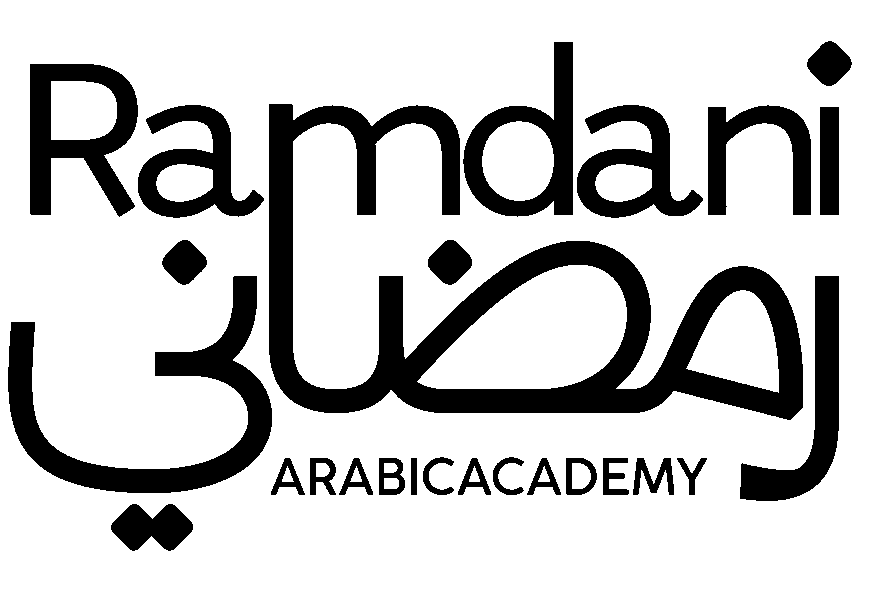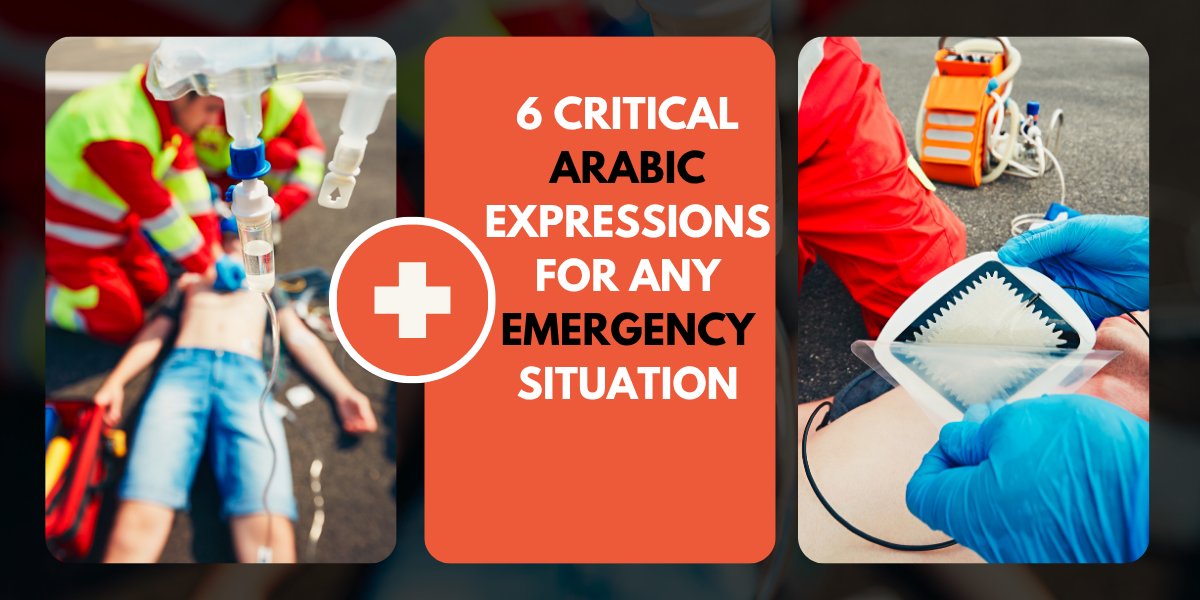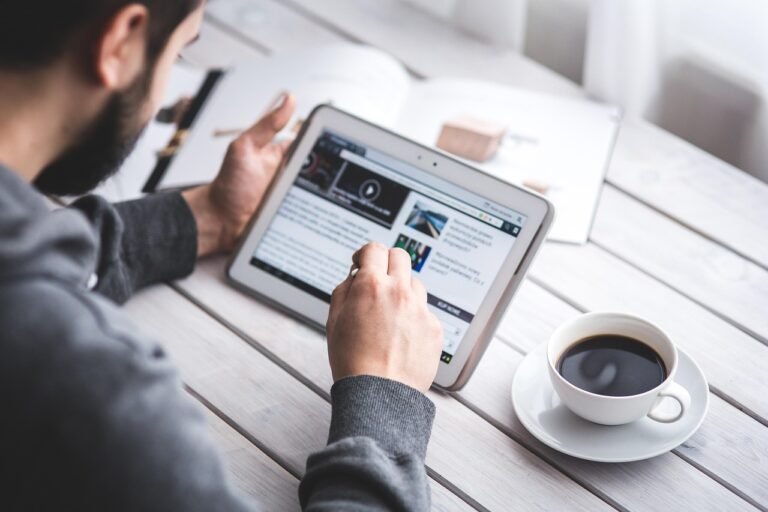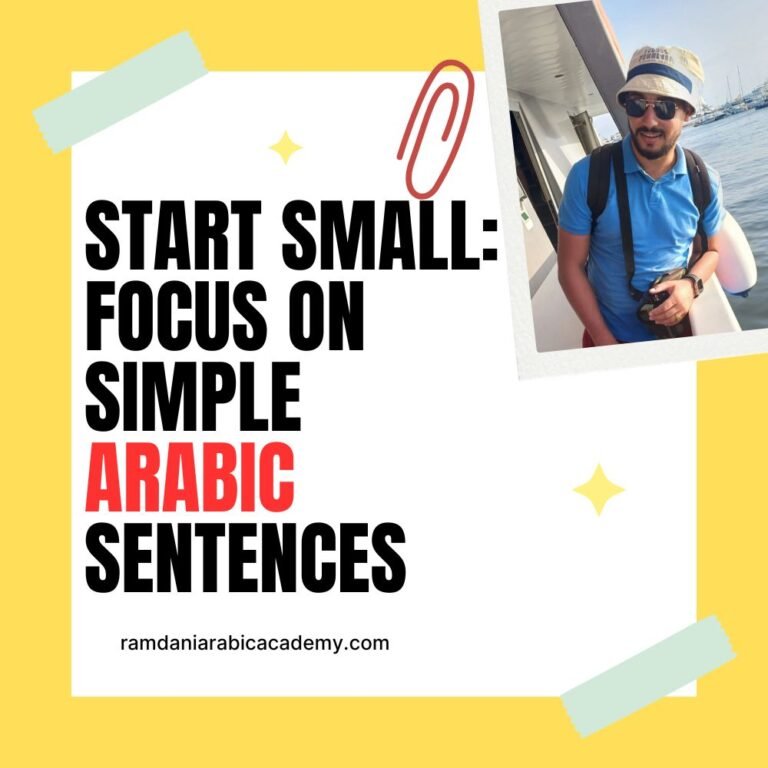6 Critical Arabic Expressions for Any Emergency Situation
Emergencies can happen at any time. A sudden accident, an illness, or a dangerous situation can leave you shocked and unsure of what to do. When you are in an Arabic-speaking country, knowing how to communicate in Arabic during these moments can make a real difference. It can save time, prevent confusion, and even save lives.
Every second counts in an emergency. You might need to call for help, describe what happened, or explain someone’s condition. Without the right words, it becomes hard to stay calm and clear. That is why learning how to handle emergency situations in Arabic is not just useful—it is essential for anyone living in or visiting an Arabic-speaking place.
The Arabic language is rich and precise. It allows you to express urgency, emotions, and requests for help with accuracy. For example, there are many ways to say “help” in Arabic, depending on the context. You can say “مساعدة” (musaa’da) for general help, or “النجدة” (al-najda) when calling out in distress. Knowing these small differences gives you confidence to react fast and correctly.
Understanding emergency vocabulary is only part of it. You also need to know how people in Arabic-speaking cultures respond to emergencies. In many Arab communities, people quickly gather to offer help. It is common for bystanders to call the ambulance, comfort the injured, or guide traffic away from the scene. This strong sense of community and solidarity is deeply rooted in the culture. If you show respect and speak with clear words, people respond with warmth and support.
When you prepare for emergencies, you prepare to protect yourself and others. This includes learning how to describe pain, injuries, or locations in Arabic. You need to know how to say things like “He is bleeding,” “She fainted,” or “Call an ambulance.” These sentences are not complicated, but they carry weight when every moment matters.
Language builds trust in these situations. Imagine a foreigner in Cairo or Riyadh who speaks Arabic well enough to explain a car accident or ask for a hospital. The local people immediately take them seriously. It shows respect for the country and culture. It shows that you care enough to learn. That can make cooperation smoother and faster.
At Ramdani Arabic Academy, we believe that learning Arabic should go beyond grammar and vocabulary. It should prepare you for real life. Emergency situations are one of the most practical and human ways to use the language. Whether you are a beginner or an advanced learner, understanding how to respond in a crisis gives your learning a purpose that connects directly with life.
This article will walk you through the essential Arabic phrases, expressions, and cultural tips you need to handle emergencies. You will learn how to ask for help, describe what is happening, talk to doctors or police officers, and keep calm under stress. You will also discover the cultural side of emergencies in Arabic societies—how people react, what they say, and what is expected of you.
If you can speak even a little Arabic in a critical moment, you can turn panic into action. That is the goal of this lesson and the mission of our academy—to give you the tools to stay safe, act wisely, and communicate clearly when it matters most.
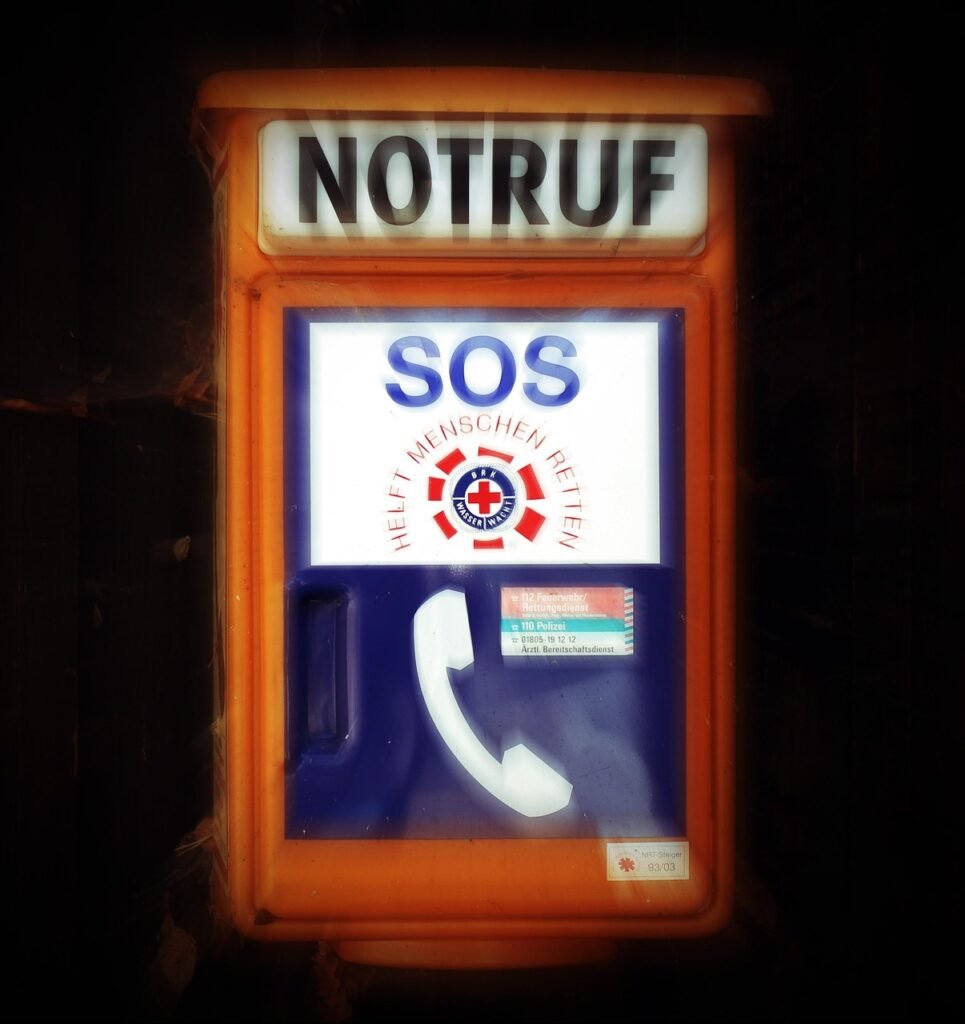
Common Emergency Words and Phrases in Arabic
When an emergency strikes, words matter. Knowing the right expressions in Arabic helps you act fast and stay understood. You do not need to be fluent. You need to be clear.
Below is a practical guide to common Arabic phrases for emergencies. They are grouped by situation to make them easier to remember and use.
1. Calling for Help
The first thing most people do is shout or call for help.
Simple phrases save time.
- Help – النجدة! (Al-najda!)
- Help me – ساعدني! (Sa‘idni!)
- Please help us – أرجوك ساعدنا! (Arjouk sa‘idna!)
- Call the police – اتصل بالشرطة! (Ittasil bil-shurta!)
- Call an ambulance – اتصل بالإسعاف! (Ittasil bil-is‘aaf!)
- Call the fire department – اتصل بالإطفاء! (Ittasil bil-itfaa’!)
When shouting for help in the street, the word “النجدة” gets immediate attention. People understand that something serious is happening.
2. Talking to the Emergency Operator
If you call 911 in your country, you might not think about what to say. In Arabic-speaking countries, emergency numbers differ.
For example:
- Egypt: 122 (Police), 123 (Ambulance)
- Saudi Arabia: 999 (Police), 997 (Ambulance), 998 (Fire)
- UAE: 999 (Police), 998 (Ambulance), 997 (Fire)
When the operator answers, keep your sentences short and direct.
- There is an accident – هناك حادث (Hunaak haadith)
- Someone is injured – شخص مصاب (Shakhs musaab)
- We need an ambulance – نحتاج إلى إسعاف (Nahtaaj ila is‘aaf)
- The place is near the market – المكان قريب من السوق (Al-makaan qareeb min al-souq)
- Please come quickly – تعال بسرعة من فضلك (Ta‘aal bisur‘a min fadlik)
3. At the Scene of an Accident
If you witness or experience an accident, use these sentences to describe what happened.
- A car hit someone – سيارة صدمت شخصًا (Sayyaara sadamat shakhsan)
- There is a fire – هناك حريق (Hunaak hareeq)
- Someone fainted – شخص أغمي عليه (Shakhs ughmi ‘alayh)
- There is blood – هناك دم (Hunaak damm)
- He is not breathing – هو لا يتنفس (Huwa la yatanfas)
- She is unconscious – هي فاقدة الوعي (Hiya faqidat al-wa‘i)
When you speak, keep calm. Use your hands to point and show where the problem is. People in Arabic-speaking countries respond well to simple, direct communication.
4. Describing Pain or Injury
If you are the injured person or helping someone who is, these phrases help describe the condition.
- I am hurt – أنا مصاب (Ana musaab)
- My leg hurts – رجلي تؤلمني (Rijli tu’limuni)
- My head hurts – رأسي يؤلمني (Ra’si yu’limuni)
- I cannot move – لا أستطيع التحرك (La astati‘ al-harakah)
- I am bleeding – أنا أنزف (Ana anzif)
- He broke his arm – كسر ذراعه (Kasara dhiraa‘ah)
In a hospital or clinic, clear pain description helps doctors understand faster even if you lack full sentences.
5. Talking to Medical Staff
When you reach a hospital or clinic, these sentences help you communicate clearly.
- I need a doctor – أحتاج إلى طبيب (Ahtaaj ila tabeeb)
- It is urgent – الأمر عاجل (Al-amr ‘aajil)
- He needs help now – يحتاج إلى مساعدة الآن (Yahtaaj ila musaa‘ada al-aan)
- Where is the emergency room – أين قسم الطوارئ (Ayna qism al-tawaari’)
- He has trouble breathing – لديه صعوبة في التنفس (Ladayhi su‘ooba fi al-tanaffus)
- She lost a lot of blood – فقدت الكثير من الدم (Faqadat al-katheer min al-damm)
If you are traveling, save these on your phone or memorize a few. In a real emergency, even two or three correct words can change everything.
6. Dealing with Police
Sometimes, emergencies involve the police. Knowing how to explain what happened helps avoid confusion.
- I saw an accident – رأيت حادثًا (Ra’aytu haadithan)
- Someone stole my bag – شخص سرق حقيبتي (Shakhs saraqa haqibati)
- I lost my passport – فقدت جواز سفري (Faqadtu jawaz safari)
- Please write a report – من فضلك اكتب تقريرًا (Min fadlik uktub taqreeran)
- Where is the police station – أين مركز الشرطة (Ayna markaz al-shurta)
Always stay polite. The Arabic phrase “من فضلك” (min fadlik) meaning “please,” shows respect. That respect can ease tension.
7. Comforting Others
If someone near you is in shock or pain, words of comfort help calm them.
- Everything will be okay – كل شيء سيكون بخير (Kullu shay’ sayakoon bikhayr)
- Stay calm – ابقَ هادئًا (Ibqa haadi’an)
- Help is coming – المساعدة قادمة (Al-musaa‘ada qadima)
- Do not move – لا تتحرك (La tataharrak)
These sentences are simple but powerful. In Arabic culture, calm words during stress show strength and care.
Language is a tool. In emergencies, it becomes a lifeline.
Even if your pronunciation is not perfect, people will understand your intention. Arabs value effort and sincerity. When you try to speak their language, they respond with patience and support.
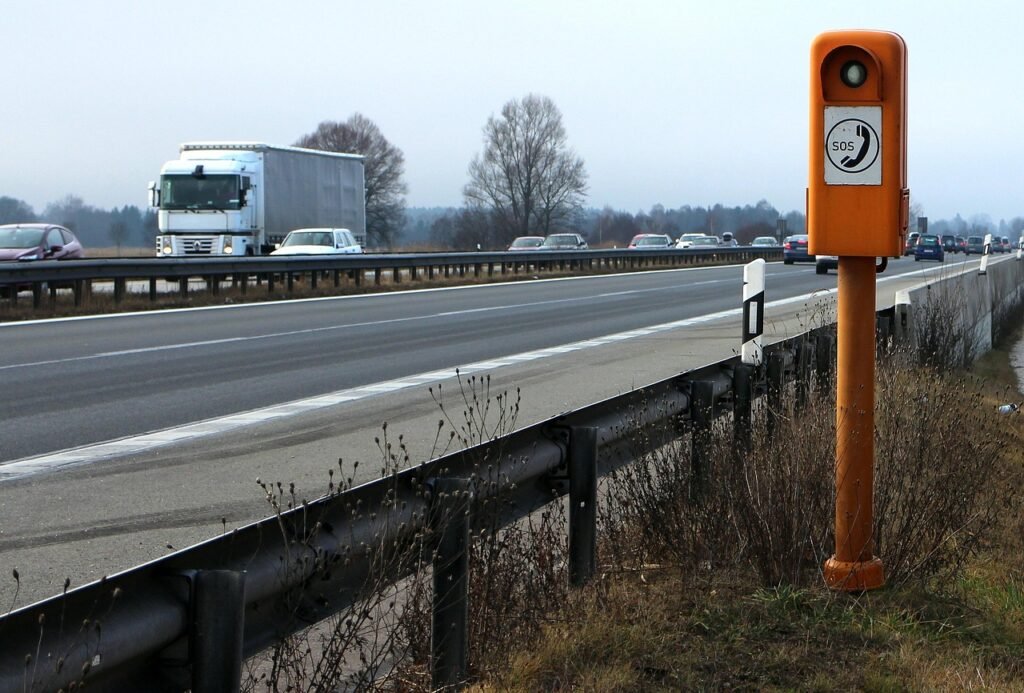
Real-Life Emergency Scenarios and How to Respond in Arabic
Knowing vocabulary is one step. Using it under pressure is another.
In real emergencies, you must act and speak quickly.
This part gives you realistic situations and the Arabic you need in each one.
1. Medical Emergency
Imagine someone near you collapses in a street in Cairo. You need to act fast.
You:
يا جماعة، النجدة! شخص أغمي عليه!
(Ya jama‘a, al-najda! Shakhs ughmi ‘alayh!)
People, help! Someone fainted!
Bystander:
اتصل بالإسعاف فورًا!
(Ittasil bil-is‘aaf fawran!)
Call an ambulance right now!
You:
الرجاء، أسرعوا! لا يتنفس!
(Ar-rajā’, asra‘u! La yatanfas!)
Please, hurry! He’s not breathing!
Explanation:
In Arab cities, people often gather to help before professionals arrive.
You can use clear commands like:
- اتصل بالإسعاف (Call an ambulance)
- أحضر ماء (Bring water)
- ابتعد قليلاً (Step back a bit)
When paramedics arrive, stay calm. They may ask:
- ماذا حدث؟ (Maadha hadath?) – What happened?
- منذ متى؟ (Mundhu mata?) – Since when?
Your answer should be short and direct:
- وقع على الأرض وفقد الوعي (Waqa‘ ala al-ard wa faqad al-wa‘i) – He fell and lost consciousness.
2. Road Accident
You are driving in Dubai and see a car crash.
You:
هناك حادث! اتصل بالشرطة فورًا!
(Hunaak haadith! Ittasil bil-shurta fawran!)
There’s an accident! Call the police now!
Bystander:
هل أحد مصاب؟
(Hal ahad musaab?)
Is anyone injured?
You:
نعم، رجل مصاب في رجله.
(Na‘am, rajul musaab fi rijlih.)
Yes, a man is hurt in his leg.
Police officer (when they arrive):
أين السيارة الثانية؟
(Ayna as-sayyaara ath-thaniyah?)
Where is the other car?
You:
غادرت بسرعة.
(Ghadarat bisur‘ah.)
It left quickly.
Explanation:
When talking to police, give only facts. Avoid emotional language.
Remember key verbs:
- صدم (sadama) – hit
- انقلب (inqalaba) – flipped
- توقّف (tawaqqaf) – stopped
And key nouns:
- حادث (haadith) – accident
- سائق (saa’iq) – driver
- شاهد (shaahid) – witness
3. Fire in a Building
You’re in an apartment in Amman, and you smell smoke.
You:
هناك حريق! أخرجوا فورًا!
(Hunaak hareeq! Ukhruju fawran!)
There’s a fire! Get out now!
Neighbor:
أين النار؟
(Ayna an-naar?)
Where’s the fire?
You:
في المطبخ، النار تزداد!
(Fi al-matbakh, an-naar tazdaad!)
In the kitchen, it’s getting worse!
You (calling):
اتصل بالإطفاء!
(Ittasil bil-itfaa’!)
Call the fire department!
Explanation:
Fire spreads fast. Use clear words, loud voice, and short orders.
Avoid long explanations. In Arabic, short commands are understood immediately.
Common useful words:
- النار (an-naar) – fire
- الدخان (ad-dukhaan) – smoke
- أخرج (ukhruj) – get out
- خطر (khatar) – danger
4. Lost Child
In a crowded market in Casablanca, a child is crying alone.
You:
يا طفل، أين أمك؟
(Ya tifl, ayna ummak?)
Child, where is your mother?
Child:
لا أعرف.
(La a‘rif.)
I don’t know.
You (to others):
هذا طفل ضائع.
(Hatha tifl daa’i‘.)
This child is lost.
Bystander:
اتصل بالأمن.
(Ittasil bil-amn.)
Call security.
Security guard:
ما اسمه؟
(Ma ismuh?)
What’s his name?
You:
لا أعرف، وجدته يبكي.
(La a‘rif, wajadtuhu yabki.)
I don’t know. I found him crying.
Explanation:
Arabs respond quickly to lost children. Speak gently but firmly. Avoid touching the child unless necessary.
Key words:
- طفل (tifl) – child
- ضائع (daa’i‘) – lost
- أم (umm) – mother
- أب (ab) – father
- أمن (amn) – security
5. Theft or Pickpocketing
You are walking in Tunis, and your phone gets stolen.
You (shouting):
اللص! سرق هاتفي!
(Al-liss! Saraqa hatifi!)
Thief! He stole my phone!
Bystander:
أين ذهب؟
(Ayna dhahab?)
Where did he go?
You:
ركض نحو السوق!
(Rakada nahwa as-souq!)
He ran toward the market!
Police (later):
صفه لي.
(Siffhu li.)
Describe him to me.
You:
رجل قصير، يرتدي قميصًا أزرق.
(Rajul qaseer, yartadi qameesan azraq.)
A short man wearing a blue shirt.
Explanation:
In theft cases, be specific. Give details like color, height, or direction. Use body language.
Important terms:
- لص (liss) – thief
- سرق (saraqa) – stole
- محفظة (mihfadha) – wallet
- هاتف (hatif) – phone
- سوق (souq) – market
6. Natural Disaster
Imagine you are in a small town and feel the ground shaking.
You:
زلزال! اخرجوا إلى الخارج!
(Zilzaal! Ukhruju ila al-khaarij!)
Earthquake! Go outside!
Neighbor:
هل الجميع بخير؟
(Hal al-jamee‘ bikhayr?)
Is everyone okay?
You:
لا أعرف، نحتاج إلى مساعدة!
(La a‘rif, nahtaaj ila musaa‘ada!)
I don’t know, we need help!
Explanation:
During disasters, clarity is survival. Arabic words for natural events:
- زلزال (zilzaal) – earthquake
- فيضان (fayadan) – flood
- عاصفة (aasifa) – storm
- ريح قوية (reeh qawiya) – strong wind
Keep your tone calm but firm.
Emergencies test more than your knowledge. They test your readiness and courage.
If you prepare phrases like these, your response becomes automatic.
You stop translating in your head and start acting.The goal is not perfect grammar. The goal is to be understood.
In Arab societies, intention matters more than accent. When you try to help, you earn respect.
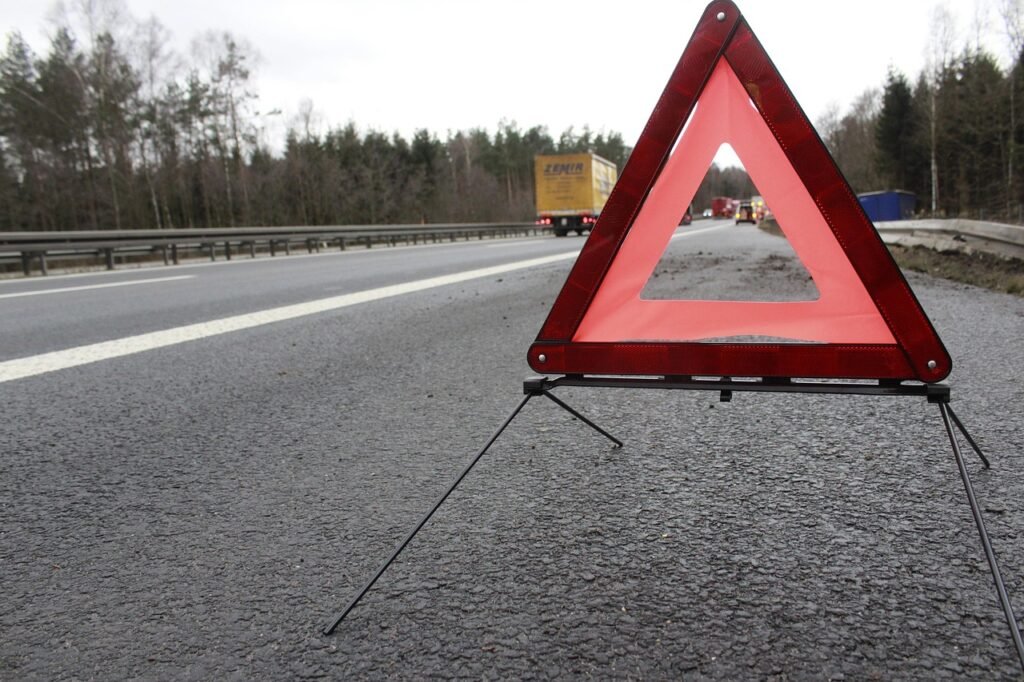
Cultural Behaviors and Emergency Etiquette in Arab Countries
Language alone is not enough in an emergency.
You must understand how people behave, react, and help during crises.
In Arabic-speaking societies, culture shapes how emergencies unfold.
This part explains what to expect and how to act when you face an emergency in an Arab country.
1. Collective Response
In most Arab cultures, people act as a group.
If a car accident happens, you will see many bystanders rushing to help.
It is not seen as interference. It is seen as duty.
People may block traffic to protect the injured.
Others will call for help or bring water.
Some will try to comfort the victim.
This reaction comes from the social value of التعاون (al-ta‘āwun) — cooperation.
You are expected to help in any way you can, even if you are not directly involved.
If you are a foreigner, do not walk away.
Show concern.
Say:
- هل أستطيع المساعدة؟ (Hal astati‘ al-musaa‘ada?) – Can I help?
- هل اتصل أحد بالإسعاف؟ (Hal ittasil ahad bil-is‘aaf?) – Has someone called an ambulance?
These questions show respect and responsibility.
2. Respect for Authority
Police, doctors, and emergency workers hold strong social authority in Arab countries.
You must show respect when talking to them.
Never raise your voice or interrupt.
When addressing an officer or doctor, start with polite forms:
- سيدي (Sayyidi) – Sir
- سيدتي (Sayyidati) – Madam
- من فضلك (Min fadlik) – Please
If you do not understand, say:
- من فضلك، تحدث ببطء (Min fadlik, tahaddath bibut’) – Please, speak slowly.
Cooperation and politeness make everything faster.
Arguing slows things down.
3. Gender Sensitivity
In emergencies involving both men and women, cultural norms still apply.
Physical contact between unrelated men and women can be sensitive.
If a woman is injured, men may avoid touching her unless necessary.
Instead, they might call for a female helper or wait for paramedics.
If you are a woman in an Arabic country and you need help, speak firmly.
Use clear words like:
- أحتاج إلى مساعدة (Ahtaaj ila musaa‘ada) – I need help.
- أنا مصابة (Ana musaaba) – I am injured.
Most Arab men will respond quickly but respectfully.
If you are a man, never assume permission to touch or move a woman without asking.
Even in an emergency, respect comes first.
4. Religious Considerations
Religion is central in daily life.
In emergencies, you may hear people say:
- الحمد لله (Alhamdulillah) – Praise be to God.
- إن شاء الله (In shaa’ Allah) – God willing.
- قدر الله وما شاء فعل (Qaddar Allah wa ma shaa’ fa‘al) – God has decreed what He willed.
These are not passive reactions.
They are ways to stay calm and accept events.
If you speak Arabic, responding with simple phrases like “الحمد لله على السلامة” (Alhamdulillah ‘ala as-salaama) — “Thank God for your safety” — shows empathy and cultural understanding.
5. Personal Space and Touch
Arab people often use physical gestures to comfort others.
A hand on the shoulder, a supportive pat, or offering water are normal acts.
But always read the situation.
If someone seems uncomfortable, step back.
Use verbal reassurance instead:
- لا تقلق، الأمور تحت السيطرة (La taqlaq, al-umoor taht as-saytara) – Don’t worry, things are under control.
In hospitals, wait for the doctor’s instructions before touching a patient.
6. Role of Family
Family plays a central role in Arabic societies.
If someone is injured, relatives arrive quickly.
They want to be present and involved.
You may see large groups gathering outside hospitals or police stations.
This is normal. It shows unity, not chaos.
When speaking to family members, use calm language.
Avoid phrases like “He is dying.”
Instead, say “حالته خطيرة” (His condition is serious).
It conveys truth but with respect.
7. Communication Style
Arabs value emotion in speech.
They speak with expression and intensity, even in emergencies.
This is not anger; it is urgency.
If someone shouts, do not take it personally.
Stay calm. Speak clearly.
Repeat key facts.
For example:
“رجل مصاب. سيارة حمراء. في الشارع الرئيسي.”
(Rajul musaab. Sayyaara hamra’. Fi ash-shari‘ ar-ra’isi.)
Injured man. Red car. On the main street.
Short sentences work better than long explanations.
8. Gratitude and Closure
After the situation is resolved, it is polite to thank everyone who helped.
Simple words go far.
- شكرًا جزيلاً (Shukran jazeelan) – Thank you very much.
- جزاك الله خيرًا (Jazak Allah khayran) – May God reward you with good.
This phrase has deep meaning. It combines gratitude and goodwill.
People appreciate it more than a simple “thank you.”
Understanding culture turns language into connection.
It helps you act naturally and respectfully under pressure.
When you know how Arabs respond to crisis, you avoid misunderstanding.
You communicate not just with words but with behavior.At Ramdani Arabic Academy, we teach Arabic as a living language.
A language that connects you to people, not just grammar.
Emergencies prove that learning a language is about more than speaking.
It is about belonging.
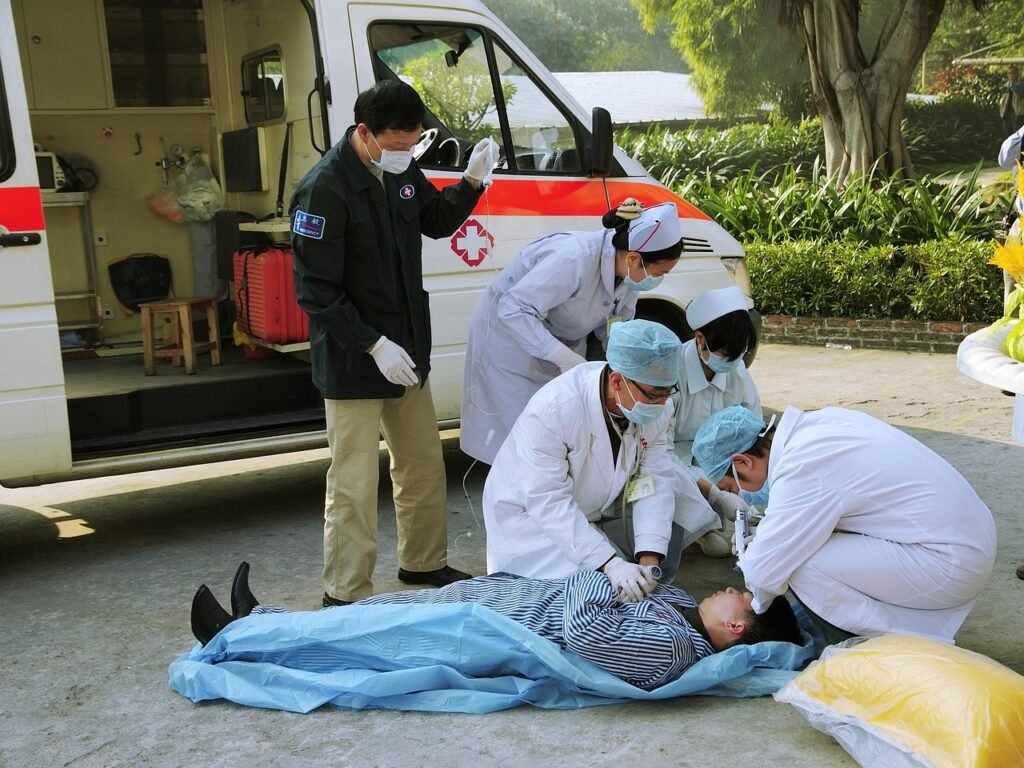
Step-by-Step Guide to Responding in Emergencies
Emergencies need more than words.
They need quick thinking, clear action, and calm coordination.
This part shows how to respond step by step while using Arabic correctly.
It focuses on what to do and what to say in different real-life situations.
1. Medical Emergency Response
Step 1: Check the situation
Look around for danger before helping.
If the place is safe, approach the person.
Say:
- هل تسمعني؟ (Hal tasma‘ni?) – Can you hear me?
- هل أنت بخير؟ (Hal anta bikhayr?) – Are you okay?
If no response:
Shout for help.
النجدة! شخص مغمى عليه! (Al-najda! Shakhs mughma ‘alayh!) – Help! Someone has fainted!
Step 2: Call for professional help
- اتصل بالإسعاف فورًا (Ittasil bil-is‘aaf fawran) – Call an ambulance now.
If you call yourself, give this information:
- What happened – حادث في الشارع (Haadith fi ash-shari‘) – An accident in the street.
- Location – قريب من المسجد (Qareeb min al-masjid) – Near the mosque.
- Condition – شخص لا يتنفس (Shakhs la yatanfas) – A person is not breathing.
Step 3: Comfort and wait
If help is coming, stay with the person.
Say:
- ابقَ معي، الإسعاف في الطريق (Ibqa ma‘i, al-is‘aaf fi at-tareeq) – Stay with me, the ambulance is on the way.
- تنفس بهدوء (Tanaffas bihudoo’) – Breathe slowly.
Do not move the person unless there is fire or danger.
2. Road Accident Response
Step 1: Secure the area
Turn on your hazard lights.
Keep others safe.
Say to bystanders:
- ابتعدوا عن الطريق (Ibt‘idu ‘an at-tareeq) – Move away from the road.
Step 2: Check for injuries
- هل أنت مصاب؟ (Hal anta musaab?) – Are you hurt?
- أين الألم؟ (Ayna al-alam?) – Where is the pain?
Step 3: Call police and ambulance
Use short Arabic instructions:
- اتصل بالشرطة (Ittasil bil-shurta) – Call the police.
- اتصل بالإسعاف (Ittasil bil-is‘aaf) – Call an ambulance.
If you are the one calling:
- هناك حادث كبير قرب المحطة (Hunaak haadith kabeer qurb al-mahatta) – There is a big accident near the station.
Step 4: Give basic help if possible
If bleeding, say to others:
- أحضر قطعة قماش (Ahdir qita‘at qimaash) – Bring a piece of cloth.
- اضغط على الجرح (Idghat ‘ala al-jurh) – Press on the wound.
Then wait for professionals.
3. Fire Emergency Response
Step 1: Warn others
Shout clearly:
- هناك حريق! أخرجوا فورًا! (Hunaak hareeq! Ukhruju fawran!) – Fire! Get out now!
Step 2: Help guide people
Use your hands and voice.
Say:
- من هنا! المخرج هذا الطريق! (Min huna! Al-makhraj hatha at-tareeq!) – This way! Exit here!
Step 3: Call fire department
- اتصل بالإطفاء (Ittasil bil-itfaa’) – Call the fire department.
When they answer: - يوجد حريق في المبنى (Yujad hareeq fi al-mabna) – There is a fire in the building.
- الطابق الثالث (At-taabiq ath-thaalith) – Third floor.
Step 4: Wait in a safe area
Do not return inside.
Tell others to stay calm:
- ابقوا معًا (Ibqaw ma‘an) – Stay together.
- النجدة قادمة (An-najda qadima) – Help is coming.
4. Theft or Loss Response
Step 1: Identify the situation
If someone steals your phone or bag, shout clearly:
- اللص! سرق حقيبتي! (Al-liss! Saraqa haqibati!) – Thief! He stole my bag!
Step 2: Ask for help
Turn to others:
- أوقفوه! (Awqifuh!) – Stop him!
- ساعدوني! (Saa‘iduni!) – Help me!
Step 3: Report to police
When you reach a station:
- تعرضت للسرقة (Ta‘arradt lil-sariqa) – I was robbed.
- سرق هاتفي في السوق (Saraqa hatifi fi as-souq) – My phone was stolen in the market.
- من فضلك، اكتب تقريرًا (Min fadlik, uktub taqreeran) – Please write a report.
Give full details.
Use hand gestures if words fail.
5. Lost Person Response
Step 1: Stay calm and observe
Look for a landmark.
Ask around using:
- هل رأيت طفلاً صغيرًا؟ (Hal ra’ayta tiflan sagheeran?) – Have you seen a small child?
Step 2: Ask security
- هناك طفل ضائع (Hunaak tifl daa’i‘) – There is a lost child.
- ساعدوني في إيجاده (Saa‘iduni fi ijaadih) – Help me find him.
Step 3: Reassure the child
Speak softly:
- لا تخف، سنجد أمك (La takhaf, sanajid ummak) – Don’t worry, we’ll find your mother.
Step 4: Wait for officials
Stay in one place until help arrives.
6. Natural Disaster Response
Step 1: Identify the danger
If earthquake or flood starts, act quickly.
Say:
- اخرجوا بسرعة! (Ukhruju bisur‘a!) – Get out quickly!
- ابقوا في مكان آمن! (Ibqaw fi makaan aamin!) – Stay in a safe place!
Step 2: Check others
- هل الجميع بخير؟ (Hal al-jamee‘ bikhayr?) – Is everyone okay?
Step 3: Call for help
- نحتاج إلى مساعدة عاجلة (Nahtaaj ila musaa‘ada ‘aajila) – We need urgent help.
Step 4: Give location
- نحن في الحي القديم قرب المدرسة (Nahnu fi al-hayy al-qadeem qurb al-madrasa) – We are in the old neighborhood near the school.
7. How to Stay Calm in Arabic
In panic, simple self-talk helps control fear.
Say to yourself:
- اهدأ (Ihda’) – Stay calm.
- فكر بوضوح (Fakkir biwudooH) – Think clearly.
- كل شيء تحت السيطرة (Kull shay’ taht as-saytara) – Everything is under control.
These phrases help you and others stay focused.
Emergencies need language that is clear and useful.
Every word here is meant to help you act, not just speak.
Practice saying them aloud.
Use them in role-play or drills.At Ramdani Arabic Academy, we teach Arabic through real-life action.
This step-by-step approach builds both skill and confidence.
When you can think and react in Arabic, you are not just learning a language.
You are learning how to handle life.
Summary
Emergencies test your knowledge, calm, and judgment.
Being prepared in Arabic gives you an advantage in any crisis.
This final part summarizes key lessons, gives practical advice, and introduces Ramdani Arabic Academy and the author.
1. Practical Advice for Emergency Situations
- Learn essential words and phrases first. Focus on help, injury, fire, police, ambulance.
- Practice short sentences, not long paragraphs. In a crisis, clarity is more important than perfect grammar.
- Memorize emergency numbers in the country you are in. Local numbers differ from one country to another.
- Always check the safety of your surroundings before helping. Protect yourself first.
- Speak calmly and clearly. Use gestures if needed. Arabs respond well to sincerity and effort.
- Be polite and show respect to authorities, medical staff, and bystanders. Words like من فضلك (min fadlik) – “please,” and شكرًا (shukran) – “thank you” make cooperation smoother.
- Understand cultural norms. Gender sensitivity, personal space, and religious expressions matter in emergencies.
- Keep a small pocket guide or phone notes with emergency phrases. Even one sentence can save a life.
2. Summary of Key Points
- Emergencies happen unexpectedly. Preparation saves time and reduces panic.
- Language is crucial. Knowing the right words, phrases, and sentences ensures you are understood.
- Culture matters. Understanding how Arabs respond to emergencies makes communication faster and more effective.
- Step-by-step actions improve results. Identify danger, call help, give clear information, provide basic support, and wait for professionals.
- Calmness is essential. Even a few Arabic phrases spoken clearly can make people listen and cooperate.
3. About Ramdani Arabic Academy
Ramdani Arabic Academy was founded to give learners more than grammar rules.
It prepares you for real-life situations, including emergencies, travel, work, and social interaction.
The academy offers:
- Online courses for beginners and advanced learners.
- Lessons focused on vocabulary, conversation, and culture.
- Articles and guides about Arabic for learners worldwide.
- Practical tips for using Arabic in everyday situations.
At our academy, learning Arabic becomes practical and meaningful.
We emphasize connecting language with action, confidence, and understanding culture.
4. About the Author
Ramdani Mohamed is the founder of Ramdani Arabic Academy.
He is passionate about teaching Arabic to learners around the world.
He believes that knowing Arabic is not just reading and writing. It is about communicating effectively, understanding culture, and being able to act in real-life situations, including emergencies.
Through his teaching, Ramdani aims to equip learners with skills they can use immediately.
He emphasizes practical language, cultural awareness, and confidence.
His work ensures that learners are not only fluent but also capable of navigating real situations safely and effectively.
5. Final Thoughts
Emergencies remind us that language is more than words.
It is a tool for survival, connection, and cooperation.
By preparing with the phrases, cultural tips, and step-by-step actions in this article, you are ready to respond confidently in Arabic-speaking environments.
Learning to communicate in emergencies is a life skill.
At Ramdani Arabic Academy, we turn this skill into practice.
Every lesson, phrase, and exercise is designed to make you more capable, calm, and effective.
Remember, knowledge and preparation empower you.
Acting with clarity, respect, and urgency can make the difference in emergencies.
Arabic is the bridge that connects you to people, help, and solutions when seconds matter most.
